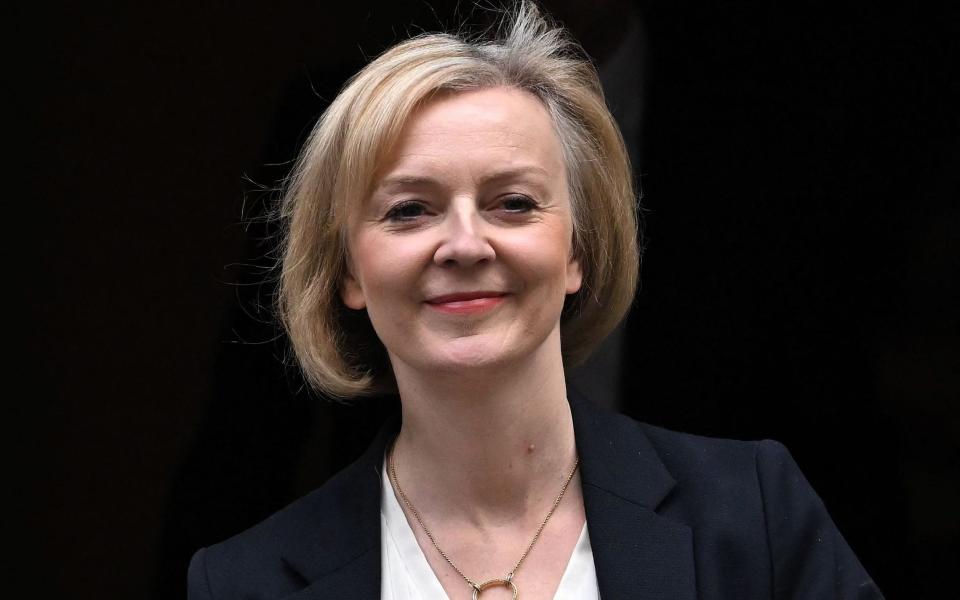
When bond markets turned dramatically against the UK in the wake of last autumn’s disastrous mini-budget, it sparked lengthy lectures on the crazy excesses of ‘trussonomics’.
Wild and risky “unfunded tax cuts” were to blame. Lower tax rates for the rich would increase inequality. The insane growth drive that led to the disregard for fiscal prudence amounted to an all-out attack on the anti-growth coalition.
But wait.
This week we learned that a boring risk premium is just as worrisome as the “idiot risk premium” (as one City analyst famously dubbed last September’s market turmoil).
With borrowing costs soaring to G7 highest levels and the UK’s creditworthiness once again at risk, one thing is certainly clear.
Britain’s reckoning with the bond markets has been a long time coming – and whoever is in charge can no longer fool themselves that ‘free’ money can be conjured out of thin air forever.
Last week was just as brutal for the UK gilt market as last September’s drama.
Investors turned determined to sell UK government debt amid another string of dismal inflation numbers, suggesting that rising prices are as entrenched in the UK economy as they were in the 1970s.
10-year bond yields rose to 4.31 percent, overtaking even Italy and hitting the highest level since last fall.
As market expectations of the interest rate set by the Bank of England rose, so did mortgage rates. It certainly won’t be long before we see cracks in the financial system and possibly, as is tediously familiar, emergency bank intervention.
It looks like last year’s sell-off was the start of something far bigger — and far more concerning.
The bond markets are no longer willing to fund the prodigality of the UK government and our determination to live well beyond our means, at least not without great reward.
Britain is becoming a poor country behaving like a rich one.
Rishi Sunak convinced the public – and possibly himself – that the government simply needed to impose some unpopular tax increases, make some “difficult spending decisions” and let the “adults” at the Treasury dictate policy.
Once that was achieved, the logic went, this period of economic turbulence would finally come to an end. But it was always a fiction.
Britain’s finances are unsustainable. In the most recent budget, overall spending by ministries remained broadly unchanged, with additional funds for defense and childcare, but significant cuts until after the next general election.
As the current borrowing figures show, we are still a long way from having a balanced balance sheet.
After a large increase in 2020, the ratio of public debt to GDP remains close to 100 percent. With the economy seemingly unable to grow, growth will only increase even if we don’t commit to borrowing more.
Our central bank has lost control of inflation, as evidenced by the rise, not the fall, in core inflation in April.
Even the headline rate remains stubbornly high at 8.7 percent, and food prices are worryingly resilient.
Chancellor Jeremy Hunt said earlier Friday that he would be happy with a recession if it brings inflation down. That’s the terrible choice the government has faced: sustained inflation or an economic downturn.
Unless we give up our addiction to low growth and debt, the situation will only get worse.
The Treasury’s forecast that it will raise £17 billion from higher corporate tax rates is likely to prove as wrong as many of its other forecasts.
It only takes a handful of private companies to move offshore, and the sums fall far short of expectations.
Meanwhile, our marginal income tax rates for many couples with children and student loans are now reaching an exorbitant 70 percent, taking into account tiered allowances and child support.
Perhaps worst of all, an upcoming Labor government would be spending a lot more and seemingly have no idea how to pay for it all.
Labor has big plans for a green energy giant, for interventionist industrial policies, not to mention pay rises for some of its public sector supporters.
But aside from plans to tax wealthy foreigners and add VAT to school fees, it’s hard to see how the country plans to pay for it. Against this background, why would anyone want to own government bonds with a negative real yield of minus 4 percent?
This could be far worse than the crisis we faced last September. For all its communication and implementation failures, the Truss government at least borrowed to fund growth and reform.
The Sunak government is borrowing to fund stagnation and Labor will borrow to fund massive government expansion.
The only real way out of this mess is to let the economy grow again.
It’s not impossible. We could lift planning restrictions to start building houses. We could finally deviate from EU rules. And we could lower taxes for corporations and entrepreneurs to boost investment, and the proceeds could result in lower taxes for individuals.
Instead, we chose to continue living in a magical money tree fantasy land disguised as financial responsibility.
Bond markets seem to be aware that the UK is mired in zero growth, persistent inflation and has lost the will to reform. As long as this continues, they will charge higher and higher prices to lend us money.
The sell-off in UK government bonds last September was just the beginning: the UK debt crisis is set to get much worse in the future.
Expand your horizons with award-winning British journalism. Try The Telegraph for free for a month, then enjoy our US exclusive offer for just $9 for a year.
